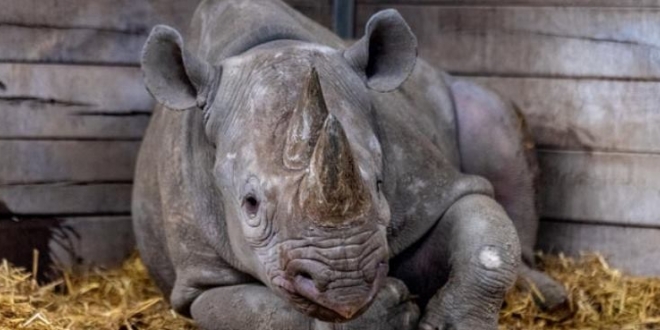AfricaPress-Tanzania: AN eight-year-old endangered black rhino is leaving a conservancy in the UK for permanent life in Tanzania.
‘Christened’ Chanua, the rhino is moving from Flamingo land resort near Malton in North Yorkshire, England, to Udzungwa Forest Reserve.
Staff at the zoo said it had been an “emotional 24 hours” as they said goodbye to the critically endangered animal they have looked after for the past four years.
Chanua will travel to Kent, where she will be introduced to two other female rhinos, before being taken by air to Tanzania.
Her handlers have been preparing her for the moment for weeks, getting her used to her container by enticing her with food, and acclimatising to any potential noise.
“She was as relaxed as any rhino can be in such circumstances,” said resort owner Gordon Gibb.
“That is really testament to the hard work of her animal trainers. She’s now on to the first stage of her journey back to her natural habitat.”
Chanua is the second black rhino to be released into the wild by the resort, with the first, Olmoti, travelling to Rwanda’s Akagera National Park last summer.
Gibb said such conservation schemes are a passion for the resort team under its mission statement. Recalling the moment he witnessed Olmoti released into the wild last year, he said: “It was a truly phenomenal moment.
“A lot of emotion comes to the surface, but that’s the end game of what we do.”
Chanua, who was born in Chester Zoo in 2012, is described as “playful but placid” by her handlers and animal trainers.
There are around 5,000 black rhinos left in the wild worldwide and only 187 in Tanzania, with poachers being one of the biggest threats to the species.
Rhinos are hunted and killed by poachers for their horn which is prized in parts of Asia, where it is thought to have medicinal properties.
Once she’s arrived in Tanzania following her 12-hour flight, it will be around a month before Chanua is released. She will be released into a semi-captive environment, where her dried food and pellets will be replaced by a local, natural diet and she will be monitored by vets before being released into the wild.







